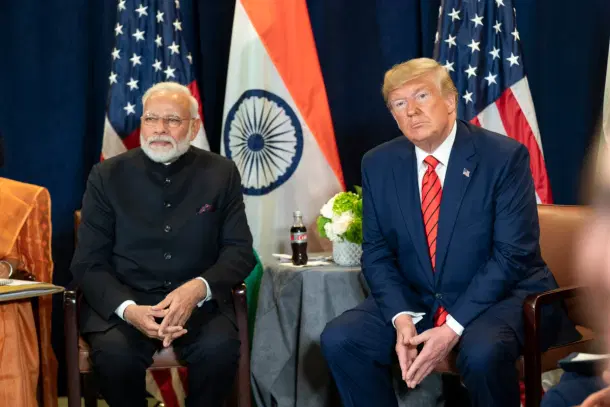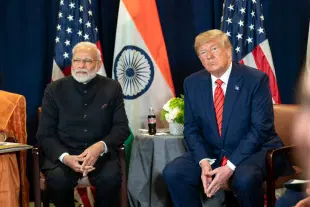News Brief
Bilateral Trade Talks Show Positive Progress: India Offers Zero-For-Zero Tariffs On Auto Parts, Steel From US
Arun Dhital
May 06, 2025, 12:52 PM | Updated 12:51 PM IST
Save & read from anywhere!
Bookmark stories for easy access on any device or the Swarajya app.


India has proposed a "zero-for-zero" tariff arrangement to United States (US) for steel, auto components, and pharmaceuticals, on a reciprocal basis and up to a specified import limit, the Economic Times reported, citing sources.
The trade talks between India and the US have been progressing steadily, with both sides working towards a landmark bilateral trade agreement expected to be concluded by fall 2025.
According to a Bloomberg report citing sources familiar with the discussions, the proposal is part of a broader push to finalise a bilateral trade agreement with Washington ahead of autumn.
Indian trade officials reportedly presented the proposal during their late April visit to Washington. The zero-duty concession would apply only to a limited volume of imports, with any amount exceeding that cap subject to India’s regular tariff rates.
US Treasury Secretary Scott Bessent highlighted India as likely the first country to finalise such a bilateral deal aimed at preventing the imposition of reciprocal tariffs proposed by the Trump administration. He credited India’s comparatively open trade policies, fewer non-tariff barriers, and minimal government subsidies for the ease of reaching an agreement.
This "zero-for-zero" tariff offer aims to facilitate early mutual gains in select sectors and expedite the conclusion of the trade pact before the expiration of the 90-day suspension on US reciprocal tariffs set to end on 8 July 2025.
The Indian side is also addressing the United States' concerns regarding Quality Control Orders (QCOs), which the US views as non-tariff barriers hindering exports.
India has shown a willingness to review these mandatory quality standards, particularly in sectors like medical devices and chemicals, and has proposed a mutual recognition agreement under which both countries would accept each other's regulatory standards.
The trade talks carry strategic significance for both countries amid global economic disruptions and shifting trade policies. For India, securing favourable terms with the US, one of its largest export markets, is crucial for sustained economic growth.





